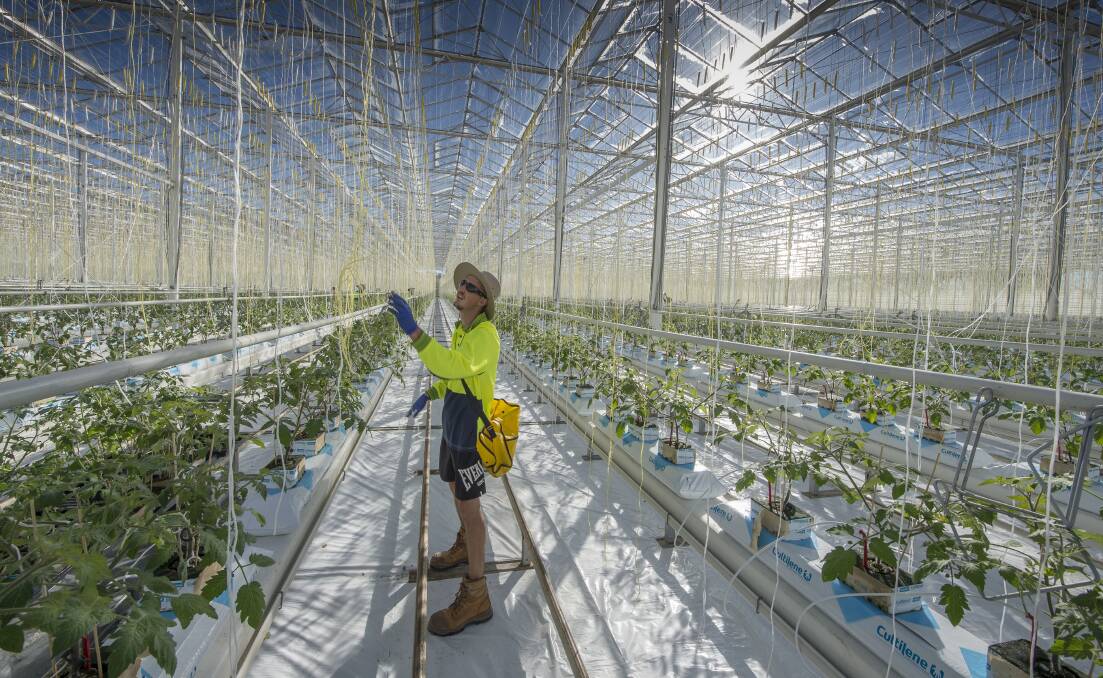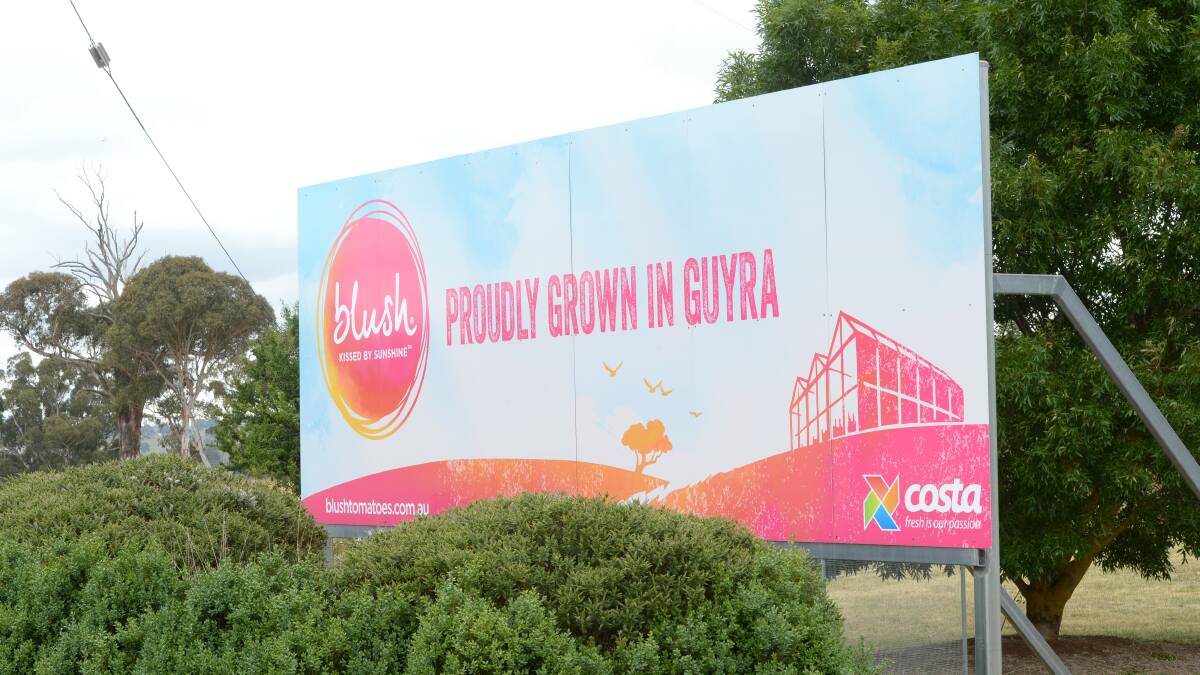
The famous annual Lamb and Potato Festival at Guyra will soon have to add ‘Tomato’ to the headline as Costa Group expands its major tomato glasshouse base at the Northern Tablelands town.
Subscribe now for unlimited access.
or signup to continue reading
Guyra is set for a glasshouse revolution with Armidale Regional Council mayor Simon Murray revealing a number of other glasshouse ventures were under consideration. Berries and broccoli are some of the projects believed to be being considered.
The Costa group has won approval to expand one of its two sites at Guyra by 10 hectares at its northern site, and this will bring in another 150 jobs to the existing worker base in Guyra of 600 people.
READ ALSO:
The venture comes alongside the NSW Government’s approval of the water pipeline from Malpas Dam to Guyra. Both the pipeline and the new glasshouse area will take about two years to complete.
Water security in Guyra is one of the reasons the Costa Group is going ahead with the project, although the company maintains it it does not use Guyra water except for domestic services such as worker facilities. The company says it collects all its water for the tomato growing operation through an intricate rainwater system on its glasshouses, that captures water on top and also at the sides of the structures. Water is also recycled and reused from the operation. A 2017 Department of Public Works report though said “Blush tomatoes” (one of Costa’s labels), used 39 per cent of Guyra’s water, that is held in two dams on the Gara River.
Costa,Group, a Victorian based enterprise says the growth in demand for cocktail and snacking smaller tomatoes has prompted the expansion - making the Guyra operation one of the largest glasshouse operations in the southern hemisphere. Guyra has the right climate for glasshouse production with long hours of sunlight and cooler temperatures.
Costa specialises in the small perino variety of tomato, that are hand-picked.

Farmers close to the glasshouse sites operation once voiced concerns that the construction operatons were affecting their groundwater, saying spring-fed creeks had run dry during the construction period two years ago. But it is believed those concerns have now evaporated.
Costa Group corporate affairs manager Michael Toby said the building of the Malpas Dam pipeline would give the business added security but the glasshouses were “designed to be self-sufficient for water”. “We’ve spent a lot of time with our neighbours to work through some of these issues,” he said. “The last thing we want to do is to take water from there (the Malpas project).”
The company saw a big future in expanding its cocktail and snacking varieties of tomatoes. The company sources its labour from many Northern Tablelands towns, and also uses the Pacific Island workers scheme to bring in pickers.
Armidale mayor Simon Murray said several other industries had expressed interest in setting up at Guyra and council was in discussions over the planned projects. He said Guyra had not been under any water restrictions but the building of Malpas Dam pipeline to Guyra (about 14km) would give the town more water security. The average annual water demand at Guyra is 423 megalitres, and this was expected to rise to 525ml in the next 20 years. The Malpas Dam pipeline will be able to bring 2.1ml a day into the Guyra water storages. The Department of Public Works found the pipeline would bring “more benefits to the community and the economy” and “every $1 spent” on the project would “return $2” in benefits.
Mr Murray said the Costa expansion could utilise the growing Yazidi community (from Iraq) in Armidale as a source of employees.

Northern Tablelands MP Adam Marshall said the decision to invest in expanding the tomato farm was “underpinned by the certainty of a back up water supply, which was created with the announcement earlier this year of $12.38 million from the State Government to construct a water pipeline from Malpas Dam to Guyra”.
“The water pipeline will not only drought-proof Guyra, it provides water security for business like Costa,” Mr Marshall said.
The water pipeline will not only drought-proof Guyra, it provides water security for a business like Costa.
- Adam Marshall, Northern Tablelands MP.
“The glasshouses are almost entirely water self-sufficient, but the pipeline will provide certainty of a back up supply of local water should there be a prolonged dry period. Without having even started construction, the pipeline has been the catalyst for this huge investment in the future of our region.”
Former Guyra mayor Hans Hietbrink said he believed Guyra could also host berry and broccoli farms. He was not concerned about the water supply situation, as Costa was “largely self-sufficient” and had an intricate recycling system. “It’s a non-issue,” he said.
“The pipeline will simply provide more additional security,” he said. Guyra had received enough rainfall in the last few months to top up its water supply.
He said people travelled from Glen Innes, Armidale and Inverell to work at the Costa glasshouses. “All in all it’s a big positive for the town (the expansion),” he said. He said there was potential for berries and broccoli growing. He said many people forgot that peas were once a big crop at Guyra. He said also potatoes would remain a strong crop in the area because it was a major seed supplier to the potato industry, as the cool ground killed off potential parasites.
And would Guyra have to change the name of its well-known Lamb and Potato Festival? “Possibly,” he said.


